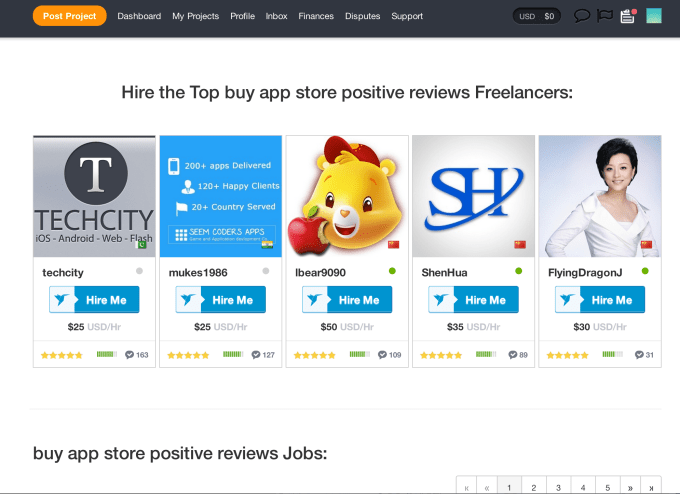App developers know that having good ratings and reviews means more users will be wiling to download their app. And thanks to ratings’ influence on Apple’s ranking algorithms, it will help their app be better discovered via the App Store’s Top Charts as well. Because of this, some — okay, many — developers manipulate their apps’ positions by posting fake ratings and reviews. It’s sort of common knowledge these days, in fact. Any brief, glowing, five-star review is immediately suspect.
As it turns out, it’s suspect to Apple, too. And now the company is doing something about it.
For some period of time — it’s unclear exactly how long — Apple has been removing fake reviews from the App Store that have unjustly helped certain apps climb higher in the charts than they would have otherwise.
There was some discussion of this on a forum back in May, when a handful of developers noticed that a good chunk of their reviews went missing. None admitted to having bought reviews, however, which is sadly a common practice now.
Developers often post jobs on freelancer marketplaces asking for reviews, or buy them in bulk from shady, third-party providers.

“I know some developers that were buying 50-100 reviews and ratings… all 5 star at one time. It was pretty obvious,” writes one developer in the forum.
The problem is, when you see things like this — that is, the changes the developers were complaining about — it’s always hearsay. You never know if this was just an isolated incident, a widespread policy change on Apple’s part, or a bug.
But after spotting an interesting tweet that seemingly caught Apple intervening once again, we dug in. And guess what? It’s true: Apple is intervening, in some cases at least, to remove fake App Store ratings.
In the example below, a sort of spammy app called “Better Fonts Free…” had all of its June ratings disappear overnight. The app, at the time we looked at it, had a few thousand ratings. But before the change, there were well over 20,000 ratings.
20k ratings gone overnight? Without update ? Mmm pic.twitter.com/fK3R7CS9Gw
— Ouriel Ohayon (@OurielOhayon) June 10, 2014
The only way for ratings to disappear like this would have to be from Apple’s intervention. That’s because there’s really no other way for a developer to remove their ratings, short of pulling the app down and then re-releasing it as a new application, going through Apple’s sometimes lengthy review process along the way. That was not the case here; the app was always live, but the ratings just disappeared.
Another explanation is that this was a bug, but that’s also not the case here, from what we’ve learned.
Instead, what happened was Apple did step in to remove this app’s ratings due to attempts by the developer to game the system. What’s more, this is not the first time the company has done this, we now understand.
In fact, any time Apple finds credible evidence of ratings fraud or manipulation, it can and “often” does take action to remove the ratings associated with that activity.
How exactly Apple hears of this fraudulent activity in the first place, however, will vary. Sometimes, the company finds evidence of manipulation or gaming itself; other times, it’s brought to Apple’s attention by others.
We’re not sure how Apple spotted the above app’s fraudulent behavior, but it would have been pretty obvious to anyone who looked that the developer was gaming the charts. [Update: apparently, the issue in this case was not so much with “fake” – meaning bought-and-paid-for reviews but with “incentivized” reviews. That is, the developer was manipulating users in triggering them to post 5-star reviews in exchange for free fonts.]
As to whether or not this will be something that Apple formalizes into a process like it has with App Store submissions is unknown. But we’re not there yet: The App Store continues to be filled with apps that clearly still have faked ratings and reviews.
However, this does indicate that Apple is aware of the wide-ranging attempts at rank manipulation going on, and is starting to take steps to prevent it. This may be known in parts of the developer community already, of course, but it’s far from being common knowledge.
To all the iOS developers who actually play by the rules, though, it’s going to be good news.
